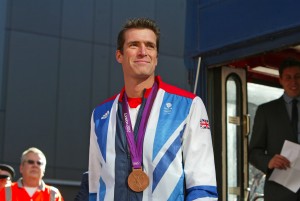Hi to all Dell Management Challenge participants!
If I asked you the three things which make a successful endurance athlete, what would you say?
For me, it’s less about talent, genetics and fitness, and much more about these three surprising characteristics…
Success means different things to different people, and success stories come in all shapes and sizes. Over the years, I’ve been privileged to work with many very successful endurance athletes. My successful clients range from elite triathletes qualifying for World Championship races and racing in GB kit, to first-timers getting fit for the first time and completing distances they once thought utterly impossible. A lifetime PB is as much of a success as overcoming illness or inspiring your family to be more active.
But you know what, amongst all those very different success stories, I’ve always noticed three character traits and behavioural habits. Three things which unite every “success”, whether it’s an elite athlete or a first-timer.
The 3 keys to successful endurance sport:
1 Consistency
The most perfect training plan in the world is little use unless you stick with it. Going at your endurance training too fast, too soon, will lead to burn out (and possible injury). And under-committing will leave you falling short of your fitness goals, too.
The key to reaching your endurance sport targets is consistency. Trust your training plan, commit to the process, and then sit with it for as long as it takes. Ultimately, it’s the small details, everyday habits, and ongoing process carried out consistently and calmly which will build the bigger picture. Consistency is key!
2 Progression
The second secret of endurance sport success is progression. You absolutely must be making progress, no matter how small, if you want to improve speed, fitness, strength and race times. Progress needs to be planned, measured and tracked. To build progression into your training, look at training stimulus. Training should build, layer on layer, by applying the correct load at the right time. Volume, distance, speed, endurance, pace and technique can all add layers to your training. Once you adapt, add another layer, to keep the progress coming. This is where it really helps to work with a coach in your sport.
Be honest and rigorous in asking yourself: is my training progressing?
3 Patience
Patience might sound like an odd quality to value in an athlete. But I think it’s very important. As endurance athletes, we tend to place great pride in our actions, results and data. Rest days are an annoyance to be endured with good grace if possible. The action is where it’s at: we’re never happier than when we’re sweating it out, pushing through barriers, or chasing PBs. So where does patience come into it? After all, patience sounds very calm, serene, and… boring. Without patience, your best efforts aren’t likely to bring results. In endurance sport, you need to be committed for the long-haul, whether that means a 12-week training plan or decades of training and racing, with all the accompanying highs and lows.
Progress, fitness and strength come slowly (sometimes frustratingly so), and we can be our own worst critics, failing to spot small successes and instead focusing on how others are doing. A patient, calm and methodical mindset will place you amongst those who enjoy true success in endurance sport… whatever that personally means to you.
These things are what underpin my coaching advice and guidance. Without them, the fitness training, nutrition advice and race-specific coaching can only ever get someone so far.
Do you agree with my three key characteristics of successful athletes? What would you add to the list?
Have an awesome week!
Mark Whittle @whittlefit











